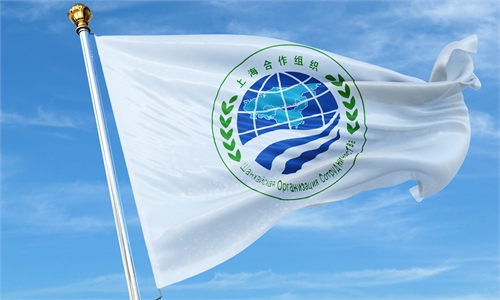
Illustration: Tang Tengfei/Global Times
Isolationism is a policy that may initially seem appealing to those who view it as a safeguard for domestic industries. However, the long-term effects of isolationism are far more damaging than its short-term gains. As the US faces increasing global competition, especially from countries like China, embracing isolationism is a surefire way to undermine its own economic strength and global influence. In fact, what some perceive as "decoupling" from the rest of the world, particularly from China, risks not only harming American businesses but also eroding the country's leadership in key industries.While the idea of shielding domestic jobs and industries from foreign competition has strong populist appeal, especially in rural America, the reality is that isolationist policies fail to address the complexities of the modern global economy.
Isolationism hampers innovation, one of the cornerstones of US economic success. When American businesses are cut off from global markets, they lose access to diverse consumer bases, supply chains and, crucially, the international flow of ideas. Innovation thrives on collaboration and competition, and by retreating behind economic walls the US risks stagnating while more outward-looking economies advance.
Another significant area of concern is the global supply chain. US industries depend on the efficient movement of goods, raw materials and components across borders. Isolationist policies that impose tariffs and trade restrictions or discourage international cooperation will raise costs for American businesses and consumers. Companies may struggle to compete with foreign firms that have access to cheaper, more diverse supply chains. The end result? Higher prices for consumers and less competitive US businesses on the world stage.
Perhaps the most glaring problem with isolationism is that it fundamentally misreads the forces driving globalization. Beijing has been promoting its Belt and Road Initiative, creating a vast network of economic ties across Asia, Africa and Europe.
While the US turns inward, China is busy building new partnerships and establishing its role as a leader in global trade and infrastructure development.
Isolationism's impact extends beyond the economy, it also affects America's geopolitical standing.
The US disengaging from international trade and cooperation is a risky move, as it risks alienating its allies and diminishing its role in setting global standards, whether in technology, finance, or environmental policy.
If America wants to remain competitive in the global arena, isolationism is not the answer. Cooperation, not withdrawal, will sustain US leadership and economic strength.
In conclusion, while isolationism might offer an illusory sense of protection, it is a dangerously shortsighted policy.
Rather than strengthening the US economy, it weakens the very foundations of its global competitiveness. In an interconnected world, retreating from international cooperation doesn't protect American jobs or industries, it undermines them.
For the US to remain competitive, it must embrace globalization, foster innovation and engage with the world, not retreat from it.
The author is a Prague-based American journalist, columnist and political commentator. opinion@globaltimes.com.cn




